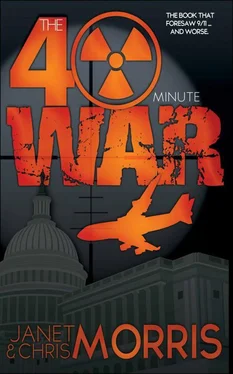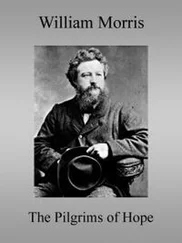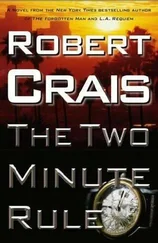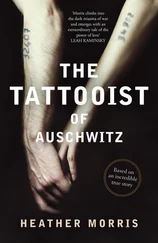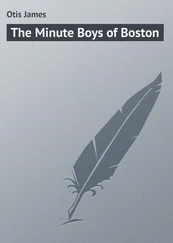“Sir.” The Delta commando scrambled away from her and forward, and she followed. Mac was right: she had work to do.
But without using her tape recorder, Mac warned her: “The old way—take notes. That’s an order.”
She didn’t ask why, and since no one mentioned the electronics Elint had given her again, she assumed she’d done the right thing. The most infuriating part of dealing with these people was that they hardly ever told you anything. It was as if declarative sentences were against their religion.
The dignitaries weren’t much better: Zenko Tsutsumi’s eyes were bloodshot; the little Japanese was still upset over what he’d seen the day before and every time the intercom crackled with instructions to look to their left or right, he started in his seat. Nacht, the IMF ComBloc rep, was bellicose and defensive, spewing the party line at her whenever she asked a question. Najeeb Thabet was obviously in fear for his life, twisting his fingers in his lap, the knuckles fish-white against his dark Mediterranean skin. And the Saudi prince and Dugard from NATO were involved in a long, unpleasant wrangle about how much of the burden of rebuilding the US would be taken on NATO’s shoulders and how much borne by the Arab League.
She should have recorded all of that, and since she couldn’t, her fingers and wrist soon numbed as she took longhand notes.
Every so often, when she looked up, she caught one of the Delta commandos staring at her and was glad Mac had gone to the trouble of demonstrating his personal interest in her. She tried to tell herself that she was the only female aboard and thus the most interesting thing to look at and that they meant no harm, but she was uncomfortable under their scrutiny. They sat so still, with their shooters’ eyes resting on her like a target. She was glad she wasn’t.
To cheer herself up, she thought about the serum again—she’d never get cancer; she’d survive all this and set up housekeeping with Marc Beck. It would happen; she’d make it happen.
Hours wore on, the drone of the rotors and the disconcerting banking of the helicopter as it swooped low to show the occasional functioning hamlet making her stomach queasy, until well after noon, when the Delta team started to bring out sandwiches and Thabet complained that he was airsick as it was and couldn’t eat unless they put down on solid ground.
Mac handed him a Dramamine without a word.
Thabet took it, turning the tablet in his fingers until one of the Deltas handed him a canteen.
As he put it to his lips, one of the pilots in the cockpit called out, “Mac, you’d better take a look at this—I’ve got a visual on a non-registering bogey at fifty feet, underflying radar, headed our way just like trouble!”
Mac unfolded himself with uncanny speed and, crouched low, headed for the flight deck, where the pilots were now whispering together in an urgent undertone.
One of the Deltas stumbled to the window in the sliding door as the chopper veered suddenly and said, “Aw, shit.”
Somebody on the flight deck called out: “ Incoming! ”
Then an explosion rocked the Black Hawk and flame spouted before Chris Patrick’s eyes.
She had time for a momentary indrawn breath which brought fire into her lungs and to throw herself backwards as her vision registered a final image: flung bodies as silhouettes before an orange fireball.
Then she was falling, along with the tail-section of the Black Hawk, toward the trees, unconscious.
When she woke, she wished she hadn’t. It was nearly impossible to breathe and something wet kept spouting up in her throat, choking her.
She couldn’t see anything, couldn’t tell if it was day or night. Her left arm was pinned under something and no matter how she tried she couldn’t free it to activate the homing device on her left wrist; her right leg felt as if it were being twisted from her body.
Sitting up was out of the question; she was trapped. She’d never experienced so much pain. She’d never thought you could hurt that much and still be alive.
Mostly, she wanted to clear her throat, take a deep breath, but she couldn’t do either. Whatever was welling up in her throat was salty and it just kept coming. After an interval, when she realized the gurglings she was hearing were coming from her, she decided that she was choking in her own blood.
She wondered how long it was going to take her to die. Then she tried to call Beck’s name. Nothing came out but awful retching sounds, like a dying animal.
Then she thought about Jerusalem and everything she’d almost had.
And that caused her to remember that she had a side arm and that all she had to do was pull it out and thumb off the safety and it wouldn’t hurt any more.
Her limbs were beginning to twitch of their own accord by the time she got it out of the holster; her body seemed like someone else’s, but that person was in terrible pain.
She really wanted to say goodbye to Beck, to see him leaning over her, just in time, to have him stare at her in that way he had and tell her that everything was going to be all right. Even now, if he did that, she’d believe him and take the gun barrel out of her mouth.
But he didn’t come.
Though Chris didn’t know it, she was all alone on a Kentucky hillside except for dead bodies and pieces of helicopter and a sick horse that hid among the trees, flanks quivering, where it had run when the helicopter had exploded above its head.
The sound of the gunshot sent the horse bolting once more, toward a broken fence through which it had escaped days ago and the safety of its barn.
In the Black Hawk as it circled over Georgetown, now a suburb of a red zone so close that the devastation beneath the descending chopper looked like the amorphous blob of a tightly shot group on a paper bull’s-eye, Beck’s nerves reached saturation and professionalism took over: he became completely calm, resigned to what lay ahead. He was part of the problem and its solution, a victim and a perpetrator, and yet none of these: his crisis management training demanded that he compartmentalize his emotions, divorce himself from the horror that lay ahead in order to function in its midst.
Once you’ve seen one holocaust, you’ve seen them all. Georgetown reminded him of Sabra and Shatilla—except that in Lebanon the dead were outnumbered by the living, who walked around in masks with dull eyes and impassive voices, as if sensory overload had made them deaf and blind to the human cost before them.
Even the charred woodframe homes and burial mounds of shattered concrete office and apartment buildings resembled Beirut, and that was a blessing—Beck knew how to deal with human tragedy on the scale of Georgetown. It was the overflight of Ground Zero Washington and its surroundings which left him breathless and numb, so that he found himself grateful when Thoreau put the chopper down on what was once a Georgetown street.
No one in the chopper had said a word since they’d decided to overfly the capital except Thoreau, who occasionally murmured positions into his helmet mike for the benefit of Fort Meade’s ground controllers.
Now Sam Nye, beside Beck, fingered his Zone-I Class radiation mask, resembling a pilot’s helmet with its clear plexiglass visor and throat-level filtration units above the seal that met his black contamination suit’s collar: “Jesus, I’d give anything to wipe the sweat off my face. You’re sure you want to go out there, Marc? We can still go straight to Langley.”
Ashmead and Slick had their helmeted heads together, talking privately by means of the wave propagation that contact afforded, their com units off, on the flight deck, Ashmead squatting by Slick’s co-pilot’s seat.
Читать дальше
